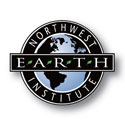Asian Americans for Change
A little over three months ago, we all sat in a large community hall filled with fishermen, shrimpers and their families. Here, in the heart of D’Iberville, Mississippi, we were gathered in a town hall style meeting to listen to the frustrations of local residents whose livelihoods are dependent on the health of the Gulf of Mexico.
Day in and day out these men hit the waters to supply the rest of their community, and the country, with fresh seafood. Yet, as we all know, since the oil spill in April, their lives have drastically changed. Even in August as we gathered to talk with them, many of them had not returned to work. But as we quickly learned, access to seafood and the ability to sell it isn’t the only obstacle affecting this community.
In the room that evening, nearly half of the families were equipped with headsets. Part of the Vietnamese community, they listened intently as Kaitlin Truong, Chair of Asian Americans for Change, translated the words of community organizer Linda St. Martin, ensuring that this group wasn’t left out of the conversation. As we learned while traveling through the Gulf, there are numerous communities with language and cultural barriers that are even more difficult to overcome in the face of an environmental disaster that affects the economy and their livelihoods. In fact, over 40,000 Vietnamese reside in the coastal Gulf States, and one in five work in the seafood industry. “Vietnamese Americans are greatly affected by the oil spill disaster due to the overwhelming large number of fishermen on the Gulf Coast,” says Truong.
Originally founded to lend a helping hand to families struggling to rebuild and recover from Hurricane Katrina, Asian Americans for Change has played an integral role in ensuring that these communities effectively navigate their way through the BP claims process, and that they don’t lose their voice in the media. As Truong says, “The oil spill affected these people’s livelihoods leaving a financial crisis, and mental anguish. The affects will last from 5 to 10 years from now.”
We caught up with Truong to get some clarity on a few more of our questions, and to shed light on the issue of a community facing serious economic and emotional hardships.
PDX2CG: Do you think that this community gets enough exposure in the national media?
Truong: Language barriers and lack of media accessibility or difficulty navigating makes it hard for this fishermen population to convey the help that they need.
Does this community feel like they are being reached out to?
Lack of transparency with regards to help from Federal entities leaves many fishermen lost and confused in the process of claims and recovery. Many find it difficult to cope with the disaster and continued uncertainties lies within these fishermen, with no hope for return to a skill that they have utilized for many decades upon arriving to America to earn a living.
Language barriers and not a lot of education, many of these seafood industry workers depended solely upon this only skill for income. Many with children whom moved away for education have no reliable source for translation needs.
How do American eating habits as a whole affect this population?
The average seafood consumption by a regular person is way less than what a person of South East Asian descent would be. Culturally Vietnamese Americans depend on seafood as a subsistence use. Daily meals consist of seafood dishes.
What can people outside of the Gulf do to help?
Continue to help advocate the need for restoration and recovery for the Gulf States and Gulf of Mexico. Many people are suffering on the coast with liabilities of vessels with no source of income to continue maintenance. Send more help, guidance, funding and leadership to our Senate and Congress that our gulf and coastal population needs continued surveillance. This disaster will have an affect that will take years to uncover.
























NO COMMENT
Leave a comment